Episode 1
Welcome Back!
S03 - Episode 1
April 05, 2025
31 mins & 53 secs
Speakers
Chris McLaughlin
Soren Peterson
About
Welcome back to the Inspired Insights Podcast for the very first episode of Season Three!
Join hosts Chris and Soren as they dive into a heartfelt conversation about the evolving world around us–and within us. In this season opener, they reflect on personal growth, shifting perspectives, and what it means to navigate change across generations.
Whether you’ve been here since Season One or you’re just joining the journey, this episode is your invitation to learn, unlearn, and grow alongside two voices committed to empowering others through curiosity, connection, and compassion.
Let’s explore this new chapter together.
https://www.youtube.com/@InspiredInsightsPodcast
inspiredinsights@inspiredcg.com
*Please note that this episode contains sensitive behavioral health topics such as suicide and substance use. If you are experiencing a behavioral health crisis, please contact the 988 Suicide & Crisis Lifeline by calling 988 or visiting www.988lifeline.org.
**This podcast is for information and entertainment purposes only and should not be considered health advice. This podcast is not intended to replace professional medical advice.
Transcript
The Inspired Insights podcast is for informational and entertainment purposes only and should not be considered health advice. This podcast is not intended to replace professional medical advice.
Please note that this podcast may contain discussions on sensitive topics such as mental illness, suicide, and substance use. If you are experiencing a behavior health crisis or need support, please contact the 988 Suicide and Crisis Lifeline by calling 988 or visiting www.988lifeline.org
Chris:
Sorin!
Soren:
Chris
Chris:
Welcome back. I would be remiss if we did not draw attention first to our new space.
Soren:
Yes, new studio, new season.
Chris:
What do you think of it?
Soren:
Uh, I really like it.
Our viewers at home can see all of the decorations that we have up, but let them be assured it is vibey in here.
Chris:
I will take, I know what I’ll do, I’ll take some pictures and give, or maybe do a little tour. Maybe I’ll do a video tour that we’ll plant with this episode and maybe, um, more to come. Maybe there’ll be a craft project.
Soren:
Indeed, indeed.
Chris:
On the, on the horizon. The best is still yet to come, right?
Yeah, I love this space. I love, um, I love the openness of it. I love, it’s just a good vibe.
Soren:
Indeed. Hopefully better sound quality as well.
Chris:
We’re gonna find out one way or the other.
Soren:
Fingers crossed.
Chris:
Welcome back. It’s nice to see you.
Soren:
Nice to see you too.
Chris:
I’m excited to kick this new season off. We’ll talk a little bit, in a little bit, about what’s to come. But yeah, being our first episode of season three, which by the way, just sit with that for a second.
Like, we’ve done 20 episodes of this podcast.
Soren:
A momentous journey it’s been.
Chris:
I mean, really, did you, could you, a year, I think, we started recording season one, just about a year ago. Can you believe that?
Soren:
It has been quite the journey, but I’m very pleased with its trajectory.
Chris:
Yeah, and yeah, and still the best is yet to come.
Soren:
Indeed.
Chris:
And so, uh, I think you and I are on the same page where we want to start continue season three with what we did in season two and offer listeners an inspired insight of the week.
Soren:
Yes.
Chris:
With that in mind, would you please honor us with the first inspired insight of season three?
Soren:
Wow, what an honor. What a moment of gravitas I’ve been faced with. And pressure.
Yes, very high pressure this is. Um, my inspired insight is a commentary on how easy it is to form new relationships. I think, like, I have the tendency to, and a lot of other people, both young and old, have the tendency to expect that forming relationships is a difficult process.
And I think that’s because of the initial barrier we build up in our heads. We are uncomfortable around unfamiliar people, but once we become comfortable around an individual, even if that just means willing to have a short conversation with them, it is so easy to form a relationship with that person.
Chris:
Yeah.
Soren:
And I saw that a lot when I was on seminar in Brazil, and we’ll talk more about that.
Chris:
We’ll talk about, yeah, because you were, yeah, we’ll have to be, we’ll map the timelines out. I love that. And I want to, I want to ask you some questions about that insight as well.
So thanks for sharing that. At no surprise to you or our listeners, I lean in heavily to Ms. Taylor Allison Swift. And I think you gave me the fun fact earlier today that I referenced Taylor in four of my inspired insights of season two.
Preach. And so why stop now, right? So I, you know, our listeners know, I just get so much inspiration from who she is as a person as well as her art.
And one of the songs that I have been listening to a lot in between the seasons is a song off the Midnight’s album called Dear Reader. And in Dear Reader, she gives a lot of inspired insights. About just lessons of life and those kind of things.
And so my inspired insight for the week comes from the song Dear Reader. And in it, she says, Bend when you have to. Bend when you can.
Snap when you have to. And I love that quote because it serves as a reminder to be flexible and to find common ground and compromise. But also be very clear with what you’re not willing to bend and when it’s time to snap and take action and push back.
Soren:
Wow, truly an ever-flowing fountain of wisdom. Is she not? She is.
Taylor, if you’re watching, praise be.
Chris:
So I want to get right into this. When season two ended, it was just after New Year’s, we were both starting some new, preparing ourselves for some new adventures in 2025. And your biggest news was that you were planning on a trip.
Yes. I want to share a little bit about what you did and where you went.
Soren:
So when the last episode of season two came out, I was in Sao Paulo, Brazil. I went to a month-long camp there with an organization called CISV with the goal being to like build global friendships in order to ensure global security. The organization was founded after World War II, so it’s essentially a peace organization that thrives through the education and connection of young people from across the world.
Chris:
And for the point of view from our listeners, you’ve been involved in CISV for years. And what makes, what I think I understand of what made this trip to Brazil really special is that this trip was sort of the graduation of all those years of involvement.
Soren:
Yeah, it was the last possible opportunity for me to engage with CISV. And which is, I found that quite sad, but it was also very rewarding and it was a lovely final send-off.
Chris:
Yeah, and you, it was three weeks?
Soren:
Yeah, so we were there for hmm, it was like 20 days and then on top of that I had like a three-day after camp where me and a few of the kids from the camp hung out in a coastal town.
Chris:
Yeah, yeah. Yeah, so is by chance your inspired insight for this week about building relationships connected to?
Soren:
Yes. Yeah, it was directly inspired by that trip because one thing that I felt going in was that I am like socially inept. I have a lot of insecurity around my like social incompetence and making other people uncomfortable or like my inability to form new relationships.
Right. And what that camp taught me was that once you break the barrier, once you crack the meniscus, it is so easy to build deep bonds with people in a relatively short period of time.
Chris:
Yeah, what was the barrier you had to crack?
Soren:
I think I
Chris:
Or who was the barrier you had to crack?
Soren:
I think the barrier was ineternal. Yeah, a hundred percent.
A hundred percent. I was just like afraid and I think I am very concerned about how I’m received because I don’t feel as though I’m a typical child and as a result of that I feel that it takes a specific person to enjoy my presence and I am always concerned that that person will not be in a given setting.
Chris:
Interesting. This is a level of insecurity that you don’t often put out to the world verbally.
Soren:
I think I don’t think I’m a very like insecure person overall, but I think it’s very important to recognize our insecurities and I’m plagued by them as is everybody.
Chris:
One hundred percent. Yeah. One hundred percent.
Our listeners are probably sitting in a little bit of surprise to hear you say what you’re saying because you present as uber confident and Is it not cool to say uber anymore?
Soren:
Um, uber meant and I can’t say that vodka.
Chris:
Ah but but you you you present as confident and and really authentic and and when you allow that vulnerability to creep in I think it makes you perfect.
Soren:
Uh Thank you. Uh, yeah, so I think I was a very I would say life-changing trip for me.
Yeah, and I got to make a bunch of great friends
Chris:
How do you stay in touch typically on your CISB trips? Do you stay in touch like digitally with?
Soren:
Yeah to some extent like I’m still in contact with a bunch of the kids from seminar even though it’s been like a month
Chris:
That’s all
Soren:
But after an extended period of time, obviously the relationship does to some extent degrade, yeah
Chris:
Yeah, but yeah What a important I’m gonna tie one more bow on this What a really important lesson for you to have though at this time of your life as you anticipate the next Giant change coming your way this summer
Soren:
Yes, it did give me a lot more confidence to face moving to a different country and going to a new school and everything
Chris:
Yeah, good for you. Yeah.
Soren:
Thank you.
Chris:
Good for you.
Soren:
Chris. What did you get up to?
Chris:
Oh so I think I shared with you for the first time and and and our listeners that As season two was wrapping. I had been accepted into a doctoral program for social work And Started that program Just over a month ago. So I am an official doctoral student now And I love that.
I and I think we joked We’re both in this new academic era, right? And so yeah, I love it. It’s it’s been literally, well In a formal sense.
I’ve not been a formal student for almost 25 years I’ve been out of graduate school for that long and like you I’m a believer that we’re lifelong learners There’s so much like so but from a formal homework paper writing things do It’s been 25 years. And so entering that at the velocity that I entered it in produced all kinds of inspired insights about How comfortable I had been not being a student and getting into that mindset Again of like due dates and homework and and obviously even as adults we there are Expectations on us right? Like I need to do things for my job that have to be done at certain points of the week or month would have you but doing it for like a grade and Similar to you I think Interacting it’s a completely online and technically asynchronous program and there are ten of us in this cohort and Interacting with people on discussion boards and Electronically is it trying to like figure out how does my personality translate into a discussion post? Yeah, or a reflection that I’m sharing with people it gets you thinking like are people getting a sense of who I am In my writing like how do I write in a doctoral way?
That’s still authentic to how I who I am and how I speak.
Soren:
I Think that’s so interesting that you desire in your Academic pursuits to still represent your personality a thousand and I think that’s very admirable I feel like when I attempt to engage with academic matters in the pursuit of formality I rob The thing that I’m creating of my personality Oh, yeah, but I think in that choice to make what I’m creating devoid of personality I am to some extent showing my personality through that desire to present something highly logical
Chris:
Yeah, because that’s that’s a part of your brand right you and I talk about brand all the time. I Do my best work when I am fully leaned into who I am Like I I don’t play a part I don’t roleplay. Well, I I Need to be me at all times and embrace that and it’s worked for me for 50 years now, so Leaning into that in this academic part of my life is Even is that much more important to me?
So yeah, I started that It’s been a wild like trying to just Balance it and fit it in I mean It’s stuff that you and your your friends do all the time having to navigate due dates and assignments and in theory
Soren:
not not very well
Chris:
Yeah in theory And so and I’m not somebody like in my personal life. I don’t live by a whole lot of rules like budgets Nick Bed Consistent bedtimes now like none of that but in the scholarly world, it is all production and Expectations of time so it’s taken me a solid month to get my feel like my feet is under me and and carve out time in the schedule to Read and write and reflect and I think that’s what I’m also Loving about the program so far unlike other academic programs I’ve done They emphasize Time to think and that time to just sit with your thoughts is part of this journey So yeah, I love that.
I love that
Soren:
Yeah, that’s really nice.
Chris:
Yeah, it’s cool. It’s cool.
Soren:
So, looking forward, what are we excited about for this upcoming season?
Chris:
Soren, there’s so much we have planned. So, we are going to, again, follow the path that we went on with season two with having some guest episodes and then sometime with you and I, like right now, we heard some good feedback from listeners that they love other voices coming into the podcast and they want to make sure they still get you and I chatting and bantering like we did through season one.
So, we’re going to do that. We’ve got some guests planned. I don’t want to spoil too much, but some of the topics we’ve planned around some guests are some we’re going to continue the thread of advocacy, especially in the world we now have found ourselves in.
We’ll get back to that. We’ve got guests talking about transition to college life. It’s going to be the what’s next with Soren episode.
So, I have some friends and colleagues here at the University of Maine that are going to come and chat about what does wellness and health look like in the college world and residential life and living in dorms. We’ve got guests planned on, how would I say this, learning how to tell your story, learning how to polish what you show to the world. So, we’ve got that.
We’re going to talk to some folks locally about Bangor Pride for Pride this year and the importance and the power of Pride. And then the other topic with the guests that’s quickly coming to mind is welcoming folks with some lived experience with navigating their own mental health and what that journey has been like for them. Listeners have heard a lot from you and from I about experiences of our journeys, and so welcoming some other voices in the room to talk about that.
Soren:
Yes. I’m very excited. Yeah.
Chris:
And then you and I will have some time to chitchat about the state of the world that we’re in.
Soren:
Various other things, of course. Yeah. I think this next season is going to be very exciting, dynamic.
Season two, I feel we hit our stride, but season three, we’re going to be running even faster.
Chris:
Yeah. And I have mixed feelings about it, to be honest with you, knowing that season three will end as you graduate high school and get ready to leave.
Soren:
Oh, yes. I know I’m excited. Yeah.
Chris:
And those are part of my mixed feelings. By that time, we would have done 30 episodes of this dang thing together. And it’s like graduation in different ways of looking at it and transitions, right?
Change. Yes. Yeah.
I have mixed feelings about it. It’s bittersweet.
Soren:
The only thing that’s constant is change.
Chris:
I know. That’s inspired insights, Zoran Peterson. Yeah.
You’re right. You’re right. And it’s awesome.
I’m thrilled for what’s happening. And who knows, maybe we’ll do a season 3.5 on the road, the travel season.
Soren:
And I think taking it back to our modern world rather than the future, what we’re attempting to do here is becoming increasingly important as the sphere of politics and the social sphere around us becomes increasingly adversarial towards individuals who are attempting to advocate for human rights.
Chris:
Yeah. Yeah. Lots changed since we closed season two.
Soren:
Yes. When we had closed season two, we knew the results of the federal election. But we had yet to see our delightful-
Chris:
The transition of power.
Soren:
The transition of power. Yeah.
Chris:
Yeah. Yeah. And you and I have been talking about it since we’ve been in each other’s company the last several days, right?
It’s hard not to talk about it. Yeah. Thinking about the episode later this season around advocacy and voice and how you balance all that with the craziness of the world around us.
I don’t quite have the words to describe how it’s felt living here in this country over the last- I’m curious. When you were in Brazil, I’m always curious about what other countries say. Were you the only American kid?
Yes. So you’re the American kid. You introduced yourself.
What’s the very first thing that other youth from other countries say when they learn you’re the American kid?
Soren:
Or do they? Well, people outside of America know America for being consumerist, our production of various foods that are bad for you, our current political instability, and the cultural expectation of nationalism. And I am not representative of the nationalism- No.
Or our current state of politics. So it gave me an awesome opportunity to sort of critique the U.S. as an outsider with other outsiders, examining the system externally and what people’s opinions are on what’s happening in the country and what people know about American history. And honestly, it is astonishing to me that the French girl knew more about American history than the vast majority of Americans do.
The British girl also knew more about American history than the vast majority of Americans do. And so did one of the Argentinian girls. So it’s kind of obscene to me to see that people outside of our country are forced to be more educated on America than its own people because of how impactful America is globally.
So that was a big eye-opener as well.
Chris:
You know what’s funny? And you’ll be my reality check here. There was a time where when Americans were traveling in certain countries, you were encouraged to pack extra Levi jeans or whatever because you could trade them and people in other country would go gaga over these Americanized pop culture icon products.
Is that still the case, do you think?
Soren:
For a lot of the people from South American countries, I noticed that the fetishization of American commodities is still highly prevalent. But a lot of the kids that were from the EU actually sort of had a resistance to American consumer products, whereas previously they didn’t. But I think it’s interesting that you mentioned Levi jeans because actually, the Swedish guy, although he was very not okay with the fetishization of American commodities, still wore all American made clothing and embraced American punk culture and really liked some of American fashion movements that we see in our cities.
Even though America’s cultural impact has become increasingly disdained by individuals in certain countries, America’s culture is still fetishized globally. We are still, to some extent, put up on a pedestal, or at least our consumer products are put up on a pedestal.
Chris:
Yeah, yeah, yeah. And you know, and our listeners know, that you know a million times more than I know about some of these global cultural kind of differences. But I’m curious, what do youth from other countries think about what’s happening politically here, knowing, and you and I were talking earlier, that some of their countries have seen similar movements of a pendulum swing to nationalist ideals?
Soren:
Yes. In pretty much every country across the planet, populism is becoming increasingly prevalent. We see this in Germany with the AFD.
We see this in Argentina with the election of Millet. We see this in the UK with increasing racist rallies against immigration. Yeah.
This is something that many, many countries struggle with. But as far as America goes, our political sphere is more of a spectacle than all of these other countries, at least on a global stage, because of how important it is. So a lot of the kids there were either disgusted with what was happening, or as a result of their political biases, very…
Chris:
Had empathy for…
Soren:
Had empathy, but also there was a boy from the UK that was very much on the far right in the UK. As a result of that was in support of individuals like Donald Trump. Really?
In America.
Chris:
What were the other young people’s reaction to that individual?
Soren:
Uh, they were not pleased with him.
Chris:
Yeah, yeah, yeah. I wouldn’t imagine that that… Because there’s a piece of that that’s, at least as the outsider, that feels like it’s the antithesis of what CISV as an organization stands for, like global villain.
Soren:
Yeah, actually, there were multiple people. For example, the Swedish guy and the French girl that I had conversations with, where they were like, why the fuck is this guy here?
Chris:
Yeah, yeah, yeah, it is.
Soren:
He doesn’t believe or espouse the core values of the organization.
Chris:
Right, like feels like that kind of program, there’s got to be a dotted line you’re signing off on, whether physically or metaphorically, like, I’m down for this. This is the kind of experience that I’m looking for. So, yeah, I would ask the same thing.
Soren:
Apparently, ethnonationalism appeals to all.
Chris:
All, yeah, right. Wow. I’m glad, though.
It really feels like this particular trip has left a really cool impact.
Soren:
Yeah, yeah. It was so awesome. And it made me so excited to travel internationally, because all of these kids are just like kids where I am, but arguably much more well-educated and interested in the world around them.
And I think that’s as a result of the selection bias of CISV. But it was such a fantastic experience, and it made me so excited for my future of getting to meet probably hundreds of people like them.
Chris:
Right, from all over. Yeah, you’re going into that with such a, I would suggest a higher baseline of that kind of dynamic than most of the young people you’re going to be a first-year student with, right? Because you’ve traveled, oh my god, how many countries have you been to now?
Soren:
Demarcation of my privilege, but… I’m surely over 20 now.
Chris:
Yeah, yeah. And a lot of those have been with this program, as you’ve done different experiences.
Soren:
Yeah, yeah. I’ve gone to three different countries.
Chris:
Yeah, yeah. So that’s cool. That’s cool.
Yeah, it’s a nice, between the bookends of your senior year in high school, to have this experience be right in the middle. And then you came back, and now you’re eyes on the prize to June.
Soren:
It was a really great way to end off my formalized high school experience, I think, because it gave me an opportunity to literally remove myself from the world that I typically am living in, and reflect on the future, the current state of reality, and myself, and how I interact with others.
Chris:
Yeah. And developing some confidence in that.
Soren:
Yeah, yeah, yeah.
Chris:
That’s cool. That’s so cool. Any other thoughts you want to share about the state of our political world here in the United States?
I know we’ve been talking a lot about it. Anything you feel like you can or want to share with our listeners?
Soren:
I think as this first episode goes out, I don’t know how dire things are going to get.
Chris:
Yeah.
Soren:
But just don’t allow the things happening around you to wear down your resistance. And surround yourselves with different ideas, both from like-minded individuals, and from individuals who are not necessarily like-minded. And analyze and examine your own worldview so that you can change the world that you are viewing with it.
Chris:
Yeah. Well, I love that. I love it.
Yeah. And I could not agree more. It feels like, I mean, we’ve been talking about it a lot of late, so it’s definitely top of mind.
And for me, it’s that finding a balance of staying informed and aware and just protecting myself. And the people I care about, who I know all too well, the harm that comes from immersing yourself in the 24-7 stuff that’s flying our way and making sure that we are, to your point, creating space for where your voice, how you show up with that voice, and making sure you preserve your voice so you don’t go hoarse or lose it. Yeah.
Yeah. There’s too much at stake right now.
Soren:
Indeed. Well, on that note, I would like to conclude our first episode of season three. Yeah.
Chris:
We’re rolling.
Soren:
Yep. Thanks for tuning in.
We look forward to seeing you guys listening to the rest of season three.
Chris:
Stick around, y’all. We got some good stuff for you.
Soren:
I’ve been Soren Peterson.
Chris:
Chris McLaughlin. Thank you.
Soren:
Have a great week.
The inspired insights podcast has been brought to you by inspired consulting group LLC edited and produced by Amanda Seidel and Derrick Carter Marketing support for the inspired insights podcast by Elizabeth Keenan music by Derrick Carter, please visit
www.inspiredcg.com to learn more copyright 2025 all rights reserved
Show More
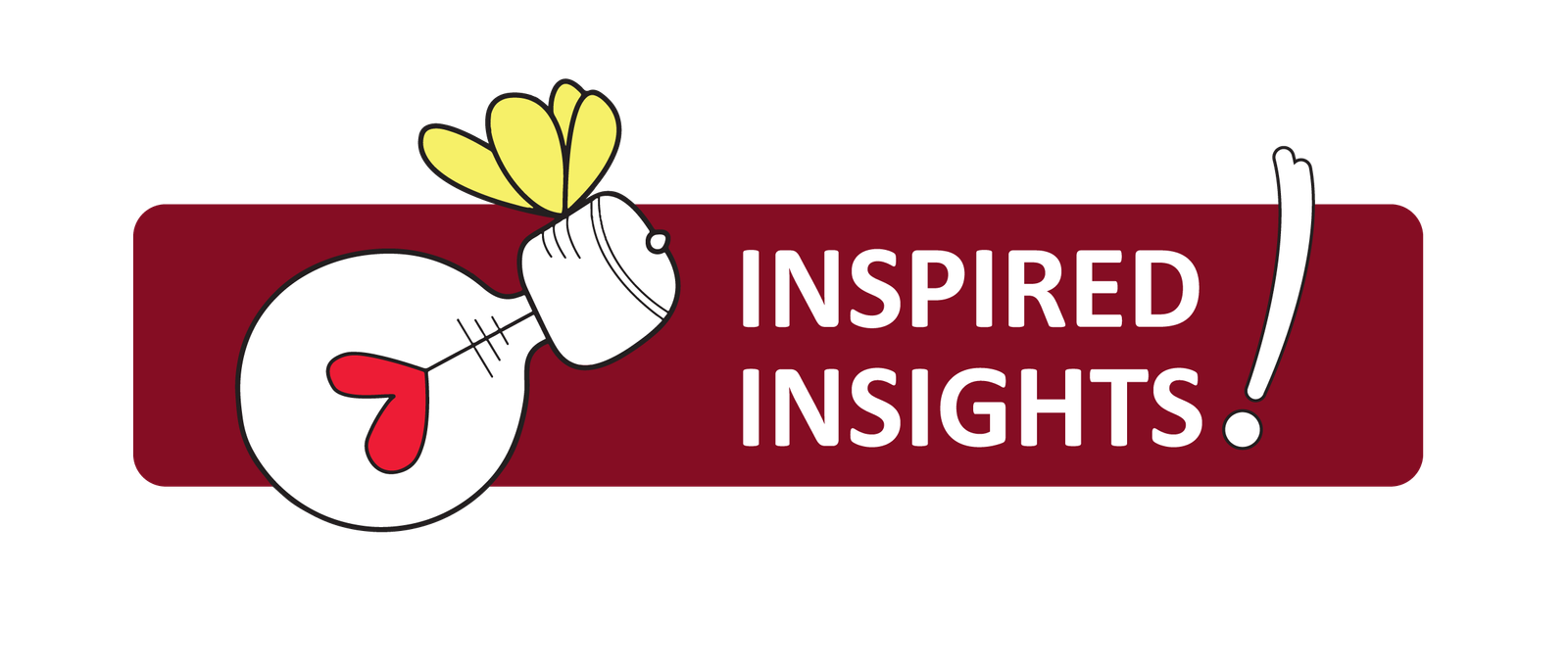
All Episodes
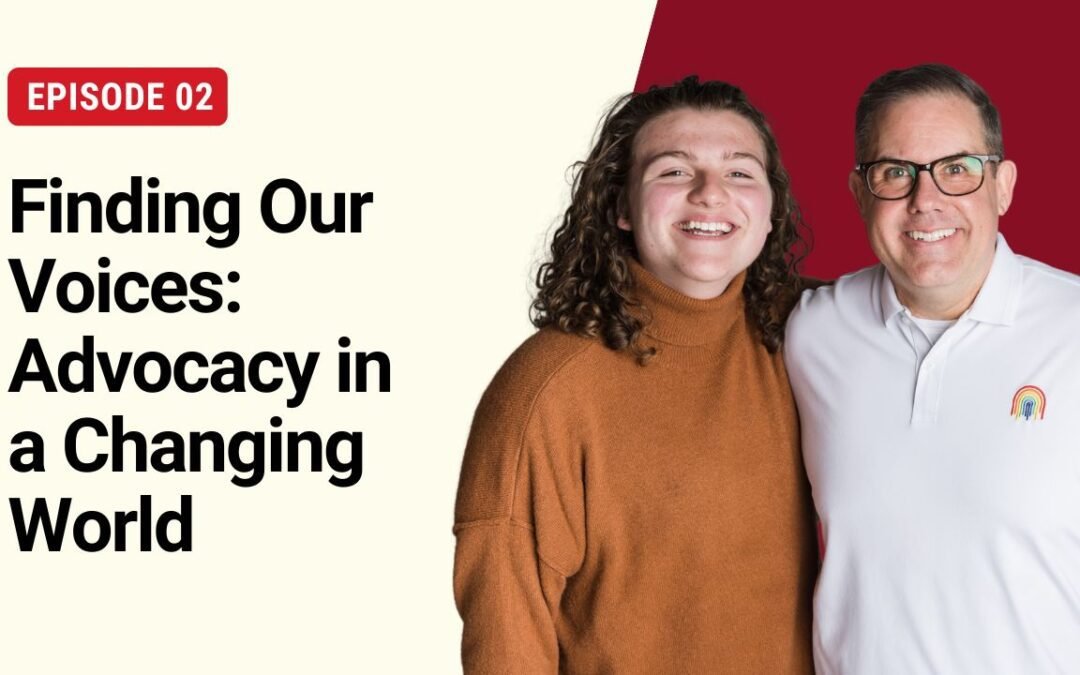
S3E2: Finding Our Voices: Advocacy in a Changing World
Chris and Soren sit down with seasoned lobbyist and tireless human rights advocate, Charlotte Warren, to explore the power—and the personal cost—of advocacy in today’s shifting political landscape.
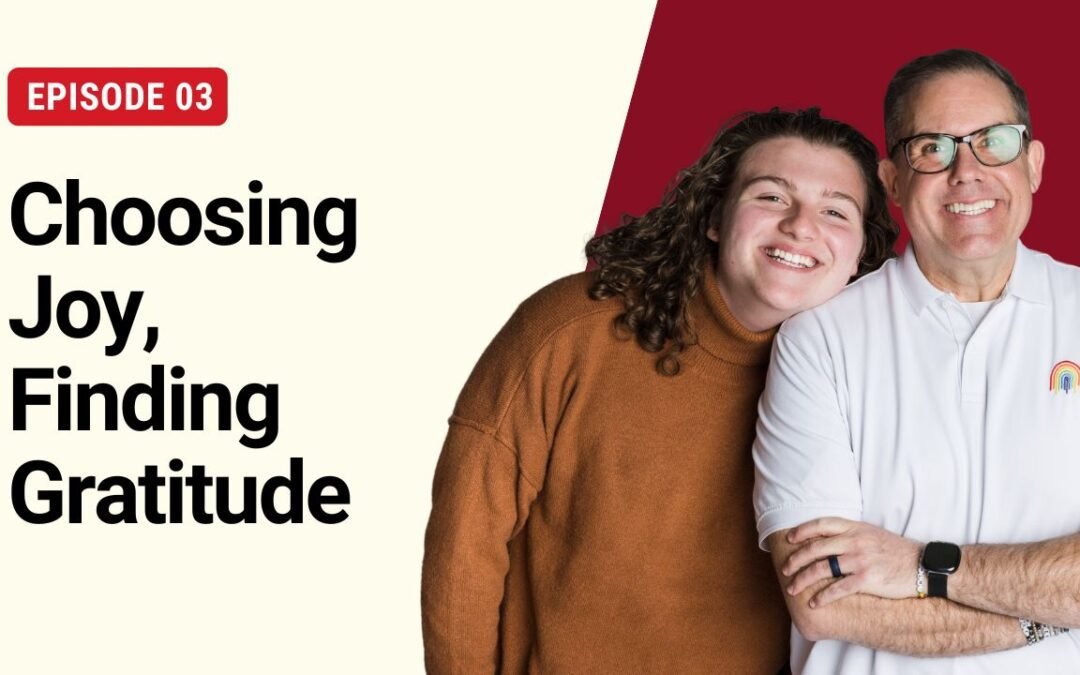
S3E3: Choosing Joy, Finding Gratitude
Chris and Soren unpack how reframing our thoughts can change the way we experience the world—from the inside out.

S3E4: The Power of Storytelling
Chris and Soren sit down with Authenticity Coach and Author Suzanne Carver to explore how sharing your story—and embracing who you truly are—can open doors to healing and transformation.
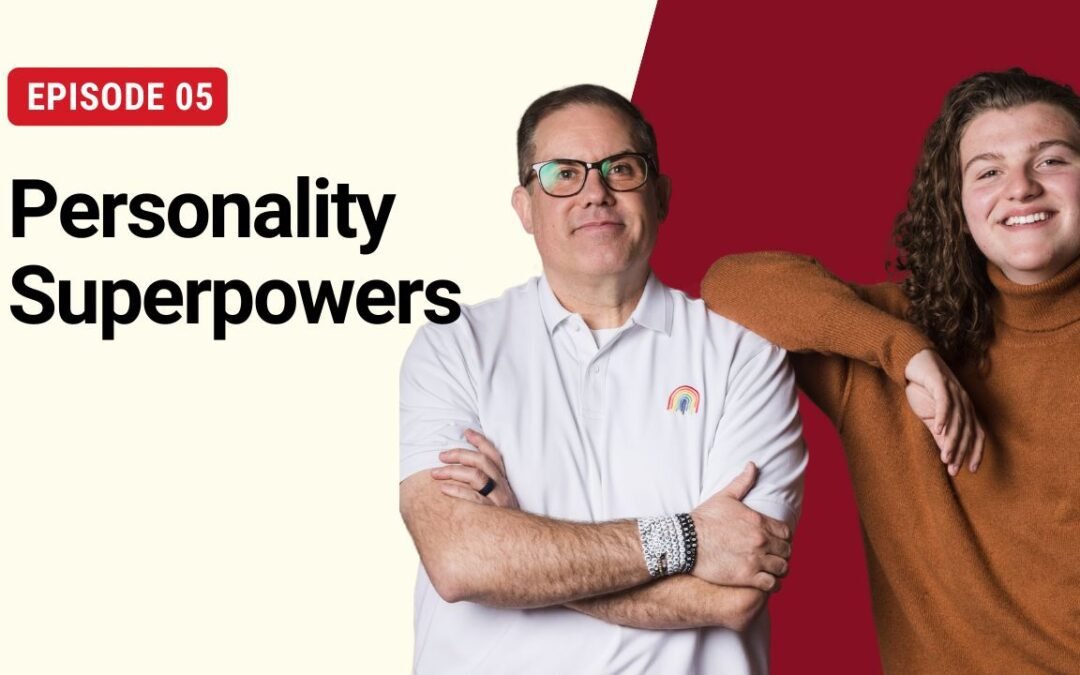
S3E5: Personality Superpowers
In this episode, Soren and Chris explore their Myers-Briggs personality types and how trauma and lived experience have influenced how they show up in the world.

S3E6: The Power of Pride
Together, they explore the deeper meaning behind Pride celebrations—why they matter, how they foster connection and visibility, and what it really takes to bring a community-wide event like this to life.
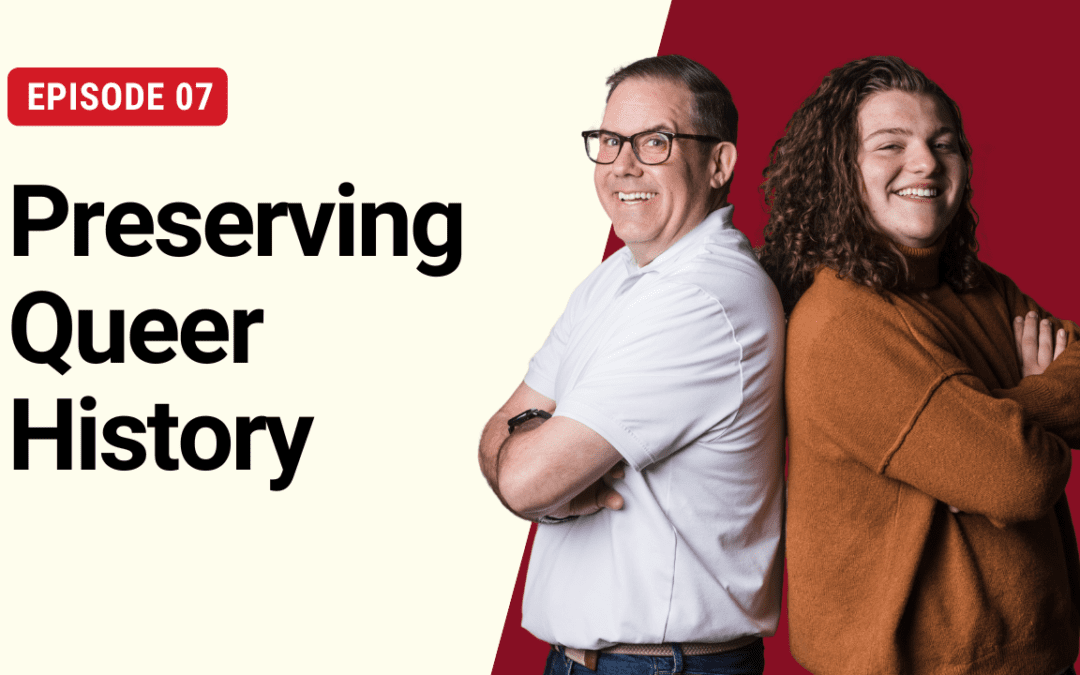
S3E7: Preserving Queer History
Soren and Chris sit down with special guests Sam and Emma to explore the vital importance of preserving queer history through storytelling and community memory.
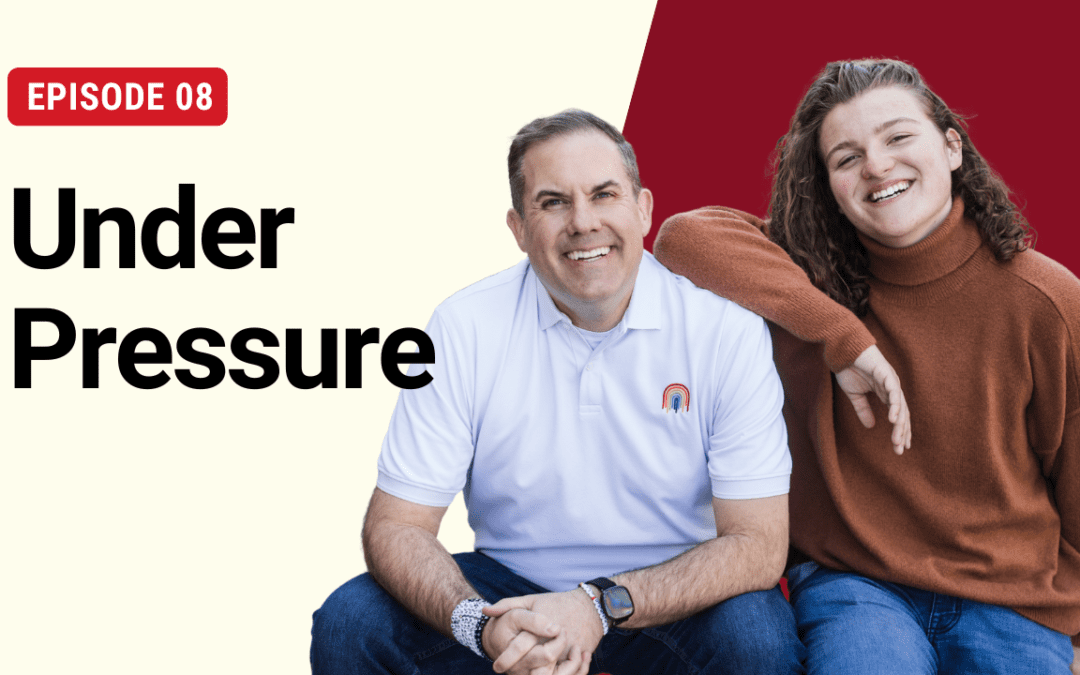
S3E8: Under Pressure
What happens when we let teens speak for themselves? In this candid and eye-opening episode, Soren and Chris hand the mic to two remarkable young adults—Sophie and Bennet
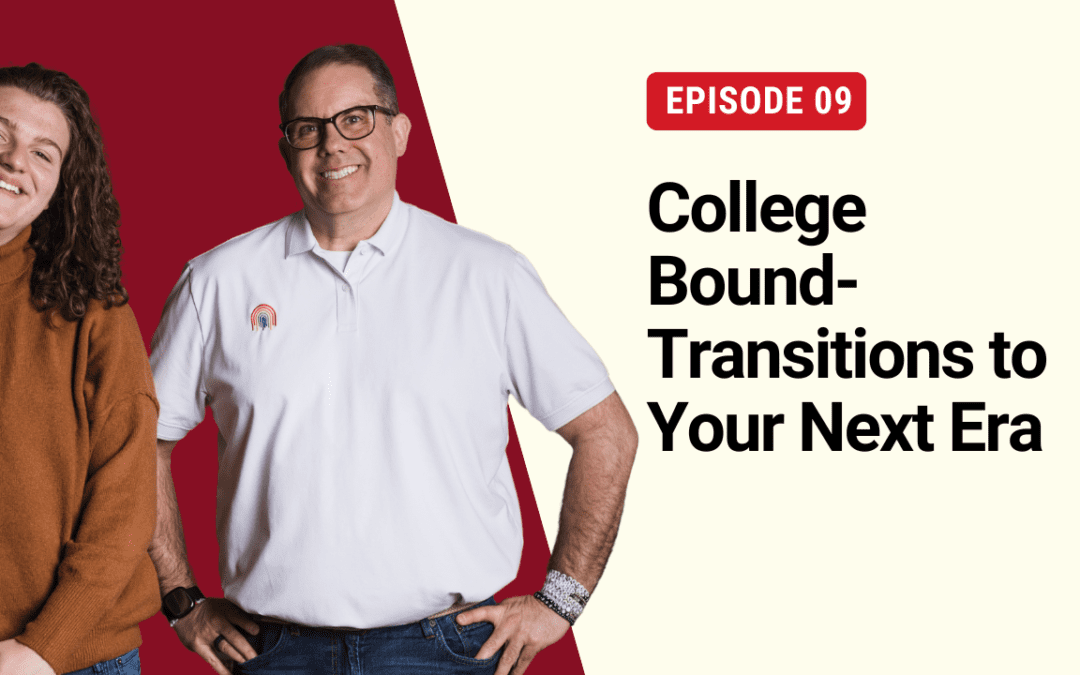
S3E9: College Bound: Transitions to Your Next Era
Soren and Chris sit down with two student life experts, Angela and Andi, to explore the powerful transition from high school to college—and how it reshapes community, mental health, identity, and daily life.
